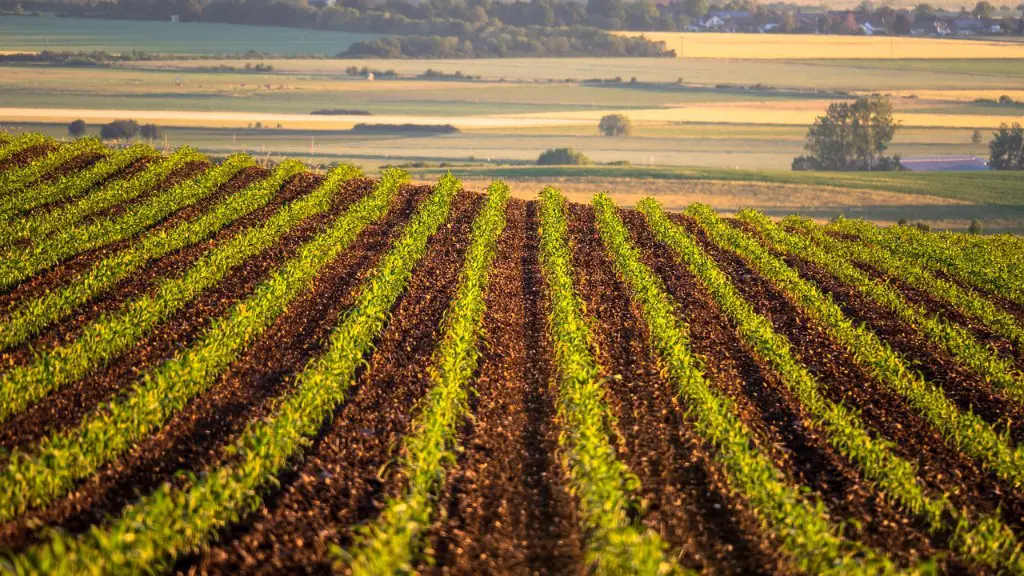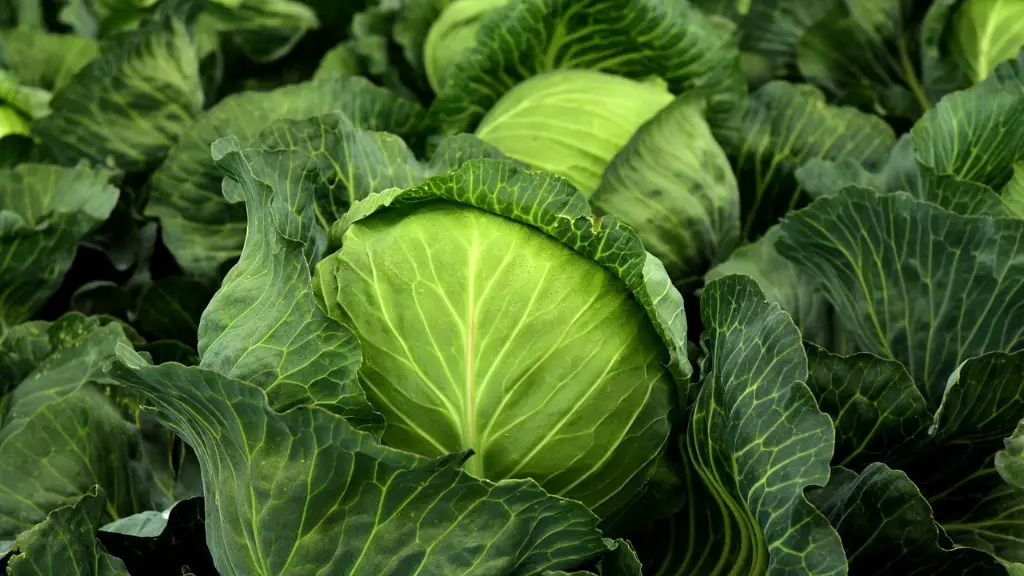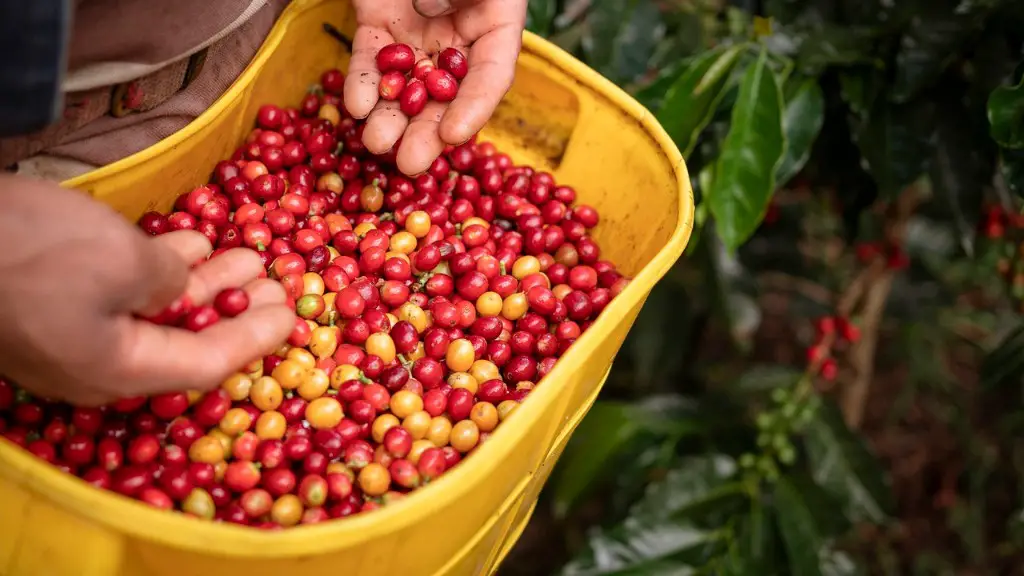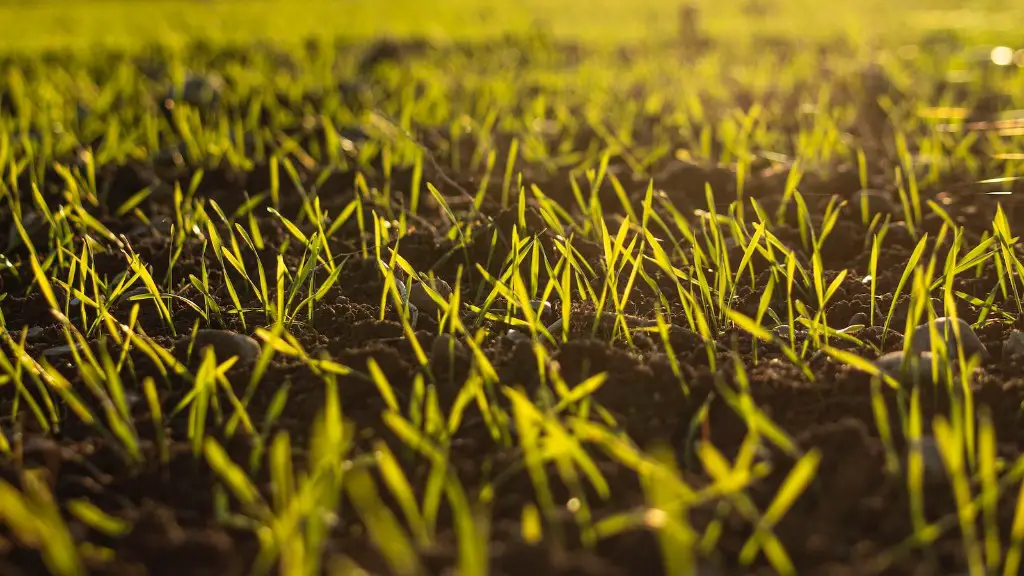Masters in Agriculture programs are becoming increasingly popular, but is the degree worth it? Agriculture is a vital industry and those with a Masters in Agriculture can find themselves in high demand. The average salary for an agricultural worker is $22,840, but those with a Masters can expect to make significantly more. The cost of a Masters in Agriculture varies, but is typically between $30,000 and $40,000. Considering the potential salary bump and the importance of the agriculture industry, a Masters in Agriculture is definitely worth it.
There is no one-size-fits-all answer to this question, as the value of a masters in agriculture depends on the individual’s career goals and professional aspirations. However, in general, a masters in agriculture can lead to higher-paying and more stable jobs in the agricultural industry, as well as provide the individual with more advanced knowledge and skills in this field. Therefore, if you are looking to further your career in agriculture, a masters in agriculture may be worth it for you.
What can I do with a masters in agriculture?
Organic farming is a rapidly growing sector of the agricultural industry, and graduates with advanced degrees in agriculture can find careers as organic farm managers. Crop and soil scientists play an important role in organic agriculture, conducting research on topics such as crop rotation and soil fertility. Community garden coordinators can also find careers in organic agriculture, working to promote local food production and food security.
MSc in Agronomy:
Agronomy is the science and technology of producing and using plants for food, fuel, fiber, and land reclamation. Agronomy has come to encompass work in the areas of plant genetics, plant physiology, meteorology, and soil science. It is the application of a combination of sciences like biology, chemistry, ecology, earth science, and genetics.
MSc in Horticulture:
Horticulture is the science and art of growing fruits, vegetables, flowers, or ornamental plants. It includes the cultivation of plants for food, medicine, and cosmetics. It also involves plant propagation and improvement, landscape design, and pest control.
MSc in Entomology:
Entomology is the study of insects, their biology, ecology, and control. It covers a wide range of topics including insect behavior, physiology, and diversity. Entomologists also study the impact of insects on humans and the environment.
MSc in Plant Pathology:
Plant pathology is the study of plant diseases, their causes, and their control. It covers a wide range of topics including plant pathology, plant-microbe interactions, plant-insect interactions, and plant-
Is it worth getting an agriculture degree
If you’re wondering to yourself, “is agriculture a good major to pursue?”, the answer is absolutely yes! While it isn’t completely necessary to have a degree in agriculture to land many agriculture jobs, it can place you in a better position and opens up other possible opportunities in the industry.
A Master’s in AgriBusiness is a great choice for students who want to have a stable career in a growing industry. The demand for food is only going to increase as the world population continues to grow, so there will always be a need for efficient food production and distribution. With a Master’s in AgriBusiness, students can help to optimize these systems and make a real difference in the world.
What is the highest paying job in agriculture?
There are many great paying jobs in agriculture! Agricultural engineers design machines and equipment to be used on farms, agronomists help farmers grow healthier crops, agricultural food scientists develop new ways to process and preserve food, veterinarians care for farm animals, and winemakers create delicious wines. Farm managers also play a vital role in keeping operations running smoothly, and agricultural sales representatives help farmers market their products. With so many important jobs to choose from, there’s sure to be a perfect fit for everyone interested in pursuing a career in agriculture.
Agriculture courses are highly interdisciplinary, requiring students to have a good grasp of both natural sciences and social sciences. The courses typically draw on areas such as biology, environmental sciences, chemistry, economics and business and management.
How many years is a master’s degree in agriculture?
A student registered for a 180-credit structured research master’s degree must complete the study programme within three years. This means that the student has to complete all the requirements within three years, including the research project.
MSc Agriculture is a postgraduate course of 2 years, taught in a number of recognized universities in the country. The course is designed to provide students with advanced knowledge and skills in agriculture, with a focus on sustainable and efficient production methods.
MSc Agriculture students can expect to gain a thorough understanding of soil science, plant science, animal husbandry, and agronomy, as well as the latest technologies and practices used in the agriculture industry. The course is also structured to allow students to specialize in a particular area of interest, such as crop science or animal breeding.
Graduates of MSc Agriculture courses are well-positioned to pursue careers in a variety of sectors, including government, agricultural research, and the private sector.
How long is a master’s degree in agriculture
The Master of Science in Agriculture (MSA) is a two-year Master’s Degree Program with thesis in accordance with the USTP’s institutional mandate to offer additional curricular programs of advance studies which are relevant, purposive, suitable and significant to cope with the changing demands for continuous education. The MSA program aims to provide competent graduates who can assume responsible leadership positions in various organizations involved in the management and development of the agricultural and natural resources sectors of the country.
Agriculture is the leading source of pollution in many countries. Pesticides, fertilizers and other toxic farm chemicals can poison fresh water, marine ecosystems, air and soil. They also can remain in the environment for generations. In order to protect our environment, we need to reduce our use of these harmful chemicals.
Can you make a lot of money in agriculture?
Agriculture can be a very profitable venture, whether you have a large farm or a small one. There are many different career options available in agriculture, and as the world progresses, there are even more ways to make money from agriculture without owning a farm or being physically present on the farm. This is a great opportunity for those who are interested in making a living from agriculture. There are many different ways to get involved in agriculture, so there is sure to be a way that fits your interests and skills. Do some research and explore the many different options available to you in the world of agriculture.
If you’re thinking about a career in agriculture, there are many options to consider. You can work on a farm, in a plant, or in an agricultural business. With the increase of technology use and application on farms, in plants and within agricultural businesses across the industry, more agriculture industry jobs are becoming available that span a variety of fields. You can choose to work in a field that interests you, and with the right skills and training, you can earn a substantial income.
What is the average salary of agribusiness MBA
An agribusiness manager is a professional who oversees the operations of an agricultural business. In India, agribusiness manager salaries range between ₹ 40 Lakhs to ₹ 150 Lakhs with an average annual salary of ₹ 61 Lakhs. Agribusiness managers are responsible for the financial performance of their company, as well as the day-to-day operations of the business. They typically have a background in agriculture, business, or both.
The career options after MBA agribusiness in India are quite vast and varied. One can choose to work in industries like market research, agriculture, teaching, and many more. The average salary package for these jobs ranges from INR 3 – 7 LPA depending on the job role one chooses to work in.
Which is better MSC or MBA in agriculture?
MBA stands for Master of Business Administration while MSc stands for Master of Science. For job purpose, MBA Agriculture is better than MSc Agriculture while for research and further studies related to the course MSc is best. Also, expense for MBA is much more higher than that of MSc.
The average placement package for PhD Agronomy Courses can range between INR 2,00,000 and INR 10,00,000. This is a great opportunity for fresh graduates to land a high-paying job.
Conclusion
A master’s degree in agriculture can be extremely beneficial for someone looking to enter the field or advance their career. The additional education and training can lead to better job opportunities and increased earnings potential. Therefore, a master’s in agriculture can be well worth the investment.
There is no one-size-fits-all answer to this question, as the value of a masters in agriculture depends on the individual’s goals and objectives. However, in general, a masters in agriculture can provide individuals with the skills and knowledge necessary to be successful in the field. Additionally, a masters in agriculture can also open up opportunities for career advancement and higher salaries. Therefore, individuals interested in pursuing a career in agriculture should consider whether a masters in agriculture is right for them.





